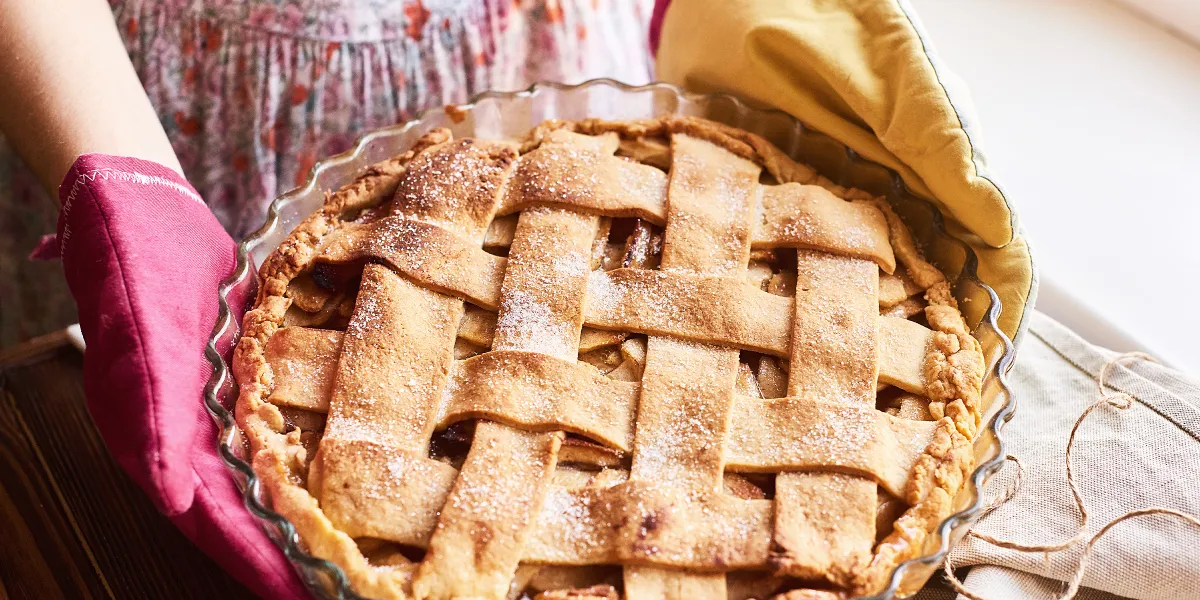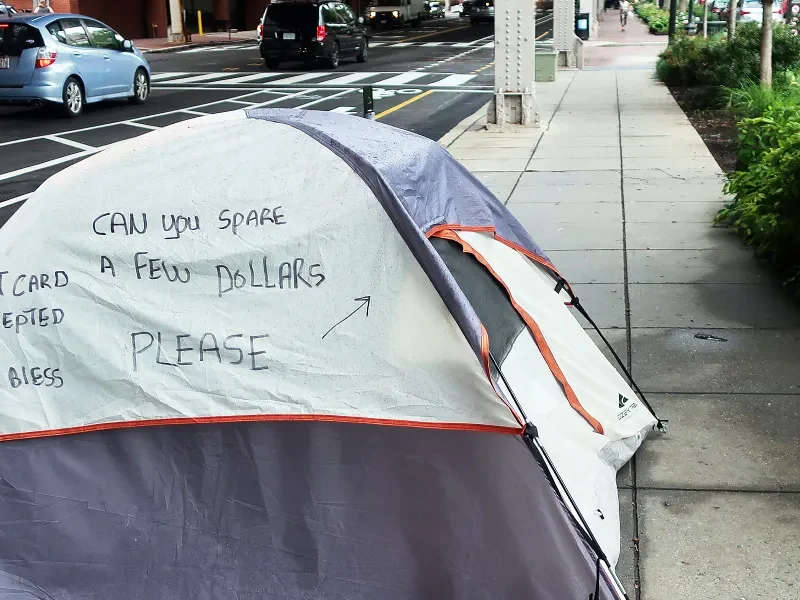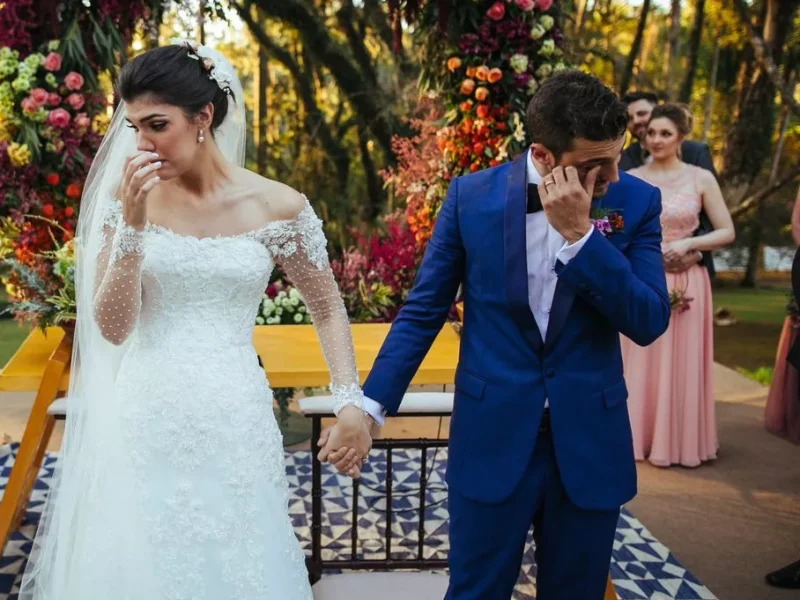Grief pushed me into the kitchen, where I found unexpected comfort in baking pies for strangers. I never imagined that one day, a pie would show up for me and change everything.
When I was 16, I watched my entire world literally vanish in smoke. However, the grief I experienced led me to start baking pies for hospice patients and those in need. Little did I know that my selflessness and loving heart would have a major payout.
The tragedy that changed my life forever occurred on one of those freezing January nights, when the cold was so intense that the windows wept. I was curled up in bed with my earbuds in, tuning out the familiar laughter between my parents as they watched television.
Then I smelled it, smoke mixing with frost, thick and sharp. I pulled my earbuds out just as the fire alarm screamed. My dad burst into my room, his boots thudding against the hardwood.
He didn’t say anything. He just grabbed me by the arm, dragged me down the stairs barefoot, and pulled me out through the front door into the snow-covered yard in my pajamas.
Then he turned around and ran back inside to get my mom and grandpa.
He never came out again, and neither did my mom or my grandpa. The blaze took all of them.
They reported that the fire originated from an electrical issue in the kitchen.
The blaze didn’t just take my family. It took the house, the savings, the photos, and the little ceramic horse my mom gave me on my tenth birthday. Everything.
Except me.
I wasn’t sure I deserved to be the one spared.
And after that tragic incident, I stopped living. I was drifting.
I ended up in a community shelter after a local volunteer service helped me get a room. They called it a dorm-style housing program for displaced youth, but it felt more like a halfway world stuck between disaster and a question mark.
I shared a room with another girl who never spoke.
There were two bathrooms per floor and a kitchen shared with about 20 others. But it was warm, safe, and clean. I had a bed, and I was grateful.
I could’ve ended up with family, but Aunt Denise, my mom’s older sister and only living relative, said she didn’t have room for me.
“I’m sorry, sweetie, but there’s no space here,” she told me over the phone. “Your uncle uses the spare room for work. And I’m not giving up my reading nook for a teenager. I’m grieving too, you know.”
She might’ve been grieving, but she was alert enough to take half of the insurance money I received. She said she’d use it to help me out by getting me clothes, therapy, and whatever I needed.
Instead, she bought herself romance and detective books, a wine fridge, a new car, and started showing up at her weekly local book club in new outfits and designer hats. She called them her “grieving wardrobe” and said they made her look “expensive but in mourning.”
I didn’t argue and was too numb to protest. Besides, I’d already lost the most precious thing—my family. I consoled myself that at least I had a mattress, a mini desk, and quiet hours between 11 p.m. and 6 a.m.
During the day, I threw myself into school and studied as if my life depended on it, because honestly, it did. I needed scholarships to get into college. I needed a plan to find work and build a life on my own. I needed to matter to someone, even if that someone was just my future self.
But at night, when everyone else in the dorm scrolled through TikTok, played music from their phones, or watched TV in the common room, I took over the kitchen. I baked blueberry, apple, cherry, peach, and strawberry rhubarb pies when I could afford it.
I saved up my monthly aid and bought ingredients like flour, fruit, and butter. I kneaded dough on a scratched-up Formica counter, rolled it out with a wine bottle I found in the trash, and baked them in the slightly off-kilter oven in the communal kitchen.
Sometimes I managed to make 10 in one evening, but my highest number was once 20.
Then I boxed them up and delivered them anonymously to the local homeless shelter downtown and the hospice center down the street. Always at night and quietly. I’d drop them off with a nurse or the volunteers.
I never gave my name or left a note, just the pie. I didn’t want credit. I’d lost my family, but I still had love, and I needed to put it somewhere.
But I also never met the people who ate them. That was too hard.
My aunt, who made random visits and calls to “check in on me,” didn’t understand.
“You’re wasting money,” she told me over the phone. “Those people don’t even know who you are. That money should be going to me. I lost my sister, too!”
But she didn’t sound sad. She sounded annoyed, as if I was a problem she hadn’t expected to last this long.
Still, I kept baking, kneading dough by hand, chopping fruit with a donated paring knife, and setting timers on a scratched-up microwave oven. It was the only time my hands felt steady, the only time my brain stopped spinning, and it gave me purpose for my grief.
Then, two weeks after I turned 18, an unexpected box arrived for me.
The receptionist at the dorm handed it to me during lunch. It was brown cardboard with my name written in delicate cursive, but no return address.
I opened it right there at the front desk.
Inside was a pecan pie!
It was perfect, with a golden crust, a braided edge, and a light dusting of powdered sugar like snow. That pie smelled like magic—warm, buttery, familiar. The scent was enough to make me dizzy!
I was surprised! I had no idea who sent it.
But as I cut it with a knife, the receptionist kept in a drawer, I nearly blacked out when I saw what was hidden inside!
It was a folded piece of thick stationery packaged in a small, clear plastic. It was cream-colored, with the ink smudged slightly at the corners. The note read:
“To the young woman with the kind heart and golden hands,
Your pies made my final months feel warm and full of love.
I never saw your face, but I felt your soul.
I don’t have family left.
But I’d like to leave my home and my blessings to someone who knows what love tastes like.
M”
I dropped the note.
The box almost fell out of my lap as I slid to the floor next to the mail desk. I just sat there for a while, staring at the crust, feeling my heartbeat behind my eyes.
The receptionist jumped and came around to see if I was okay.
I showed her the note and explained what had happened. She helped me up with the box, note still in my hand, and advised me to go nap it off. “Some things seem easier after a little nap,” she said.
I didn’t even know what the note meant at first, until three days later, when a lawyer called me.
His name was Paul. He had a calm voice and sharp diction. He asked me to confirm my name and if I had been delivering baked goods to the local hospice for nearly six months.
“Yes,” I said, though I barely recognized my own voice.
“Then you may want to sit down,” he said. “Margaret Hendley passed away last week. She named you as the sole beneficiary of her estate.”
I blinked, trying to process if I’d heard him properly, then second-guessed if he’d called the right person. “Excuse me? What estate?”
“Yes. Her home, car, personal belongings, and a trust fund left by her late husband, which she never used, are all yours. The trust accrued interest for nearly 20 years without her touching it. Its value is $5.3 million.”
I laughed while curled up on a bus bench outside the library, holding an open backpack full of scholarship forms. I looked at them, then at the sky. My laughter was this strange, sharp sound that almost scared me!
“But… she didn’t even know who I was,” I said.
“Actually, she did,” he replied. “She asked the hospice staff to help her find you. One of the night nurses memorized your coat, the red one with a missing button, and your gray knit hat. She followed you at a distance one evening and saw you enter the shelter. The nurse spoke to the receptionist and found your name and heard the story of how you ended up there.”
“She… followed me?”
“Margaret wanted to thank you. Quietly and kindly, without scaring you away.”
I couldn’t speak. My throat felt too tight.
Paul continued, “Margaret, who’d also gone blind, asked the nurses for detailed descriptions every time a pie arrived. She’d guess the flavors from their smells. She insisted on saving slices to share with the other patients.”
“My client also kept a journal about them, where she wrote down which pies arrived each day and tried to guess what kind of person the baker was. She even tried to guess your age. I was there when she once said, ‘Whoever she is, she’s quiet, young, and grieving. But she still knows how to love.'”
I was beyond shocked!
“Could you tell me a little more about Margaret?” I asked softly, feeling a connection to a woman I’d never met and would never meet.
“She guessed that you’d ask,” Paul replied, obviously smiling at Margaret’s correct prediction. “Margaret was a retired librarian. She was widowed and had no kids. She had stage 4 liver cancer and spent her last year in hospice. According to the staff, she barely spoke to anyone until the pies started showing up.”
Paul promised to stay in touch and keep me updated about the transfer of the estate.
I kept the news to myself for a while. I didn’t even tell the other girls at the shelter. I was scared that saying it out loud would make it vanish.
But then Aunt Denise found out.
I wasn’t sure how, but it didn’t take long to figure it out. Margaret’s estate had to be publicly listed through the local probate court. It showed up in the legal notices section of the city newspaper. Denise subscribes mainly for the crossword and the obituaries. She saw my name.
She called me that evening. I didn’t even say hello.
“You owe me,” she said immediately. “I raised you after the fire. I gave you everything. I’m your family!”
“You gave me nothing,” I said.
“You don’t deserve it! And I lost your mother, too. That house should’ve gone to me. That money should’ve gone to her sister. To family!”
I hung up. Then I blocked her number.
Margaret’s house is in a quiet neighborhood with wide streets and big porches. It smells like cedar and old books, and the front porch swings in the wind. There’s a little greenhouse in the backyard full of roses and orchids.
Her husband built it for her on their 30th anniversary.
I moved in last month. I still haven’t touched the money.
But I bake in her kitchen now. I use her wooden spoons, her rolling pin, and her mixer. The note above the oven reads, “The best ingredient is time.”
I still bring pies to the hospice, the shelter, and now the hospital as well. However, I now leave a small note on each box with my name.
“Baked with love. From someone who’s been where you are.”
A stranger’s pie changed my life.
But it was her kindness, not the money or the house, that gave me something I hadn’t felt in years.
Peace.


